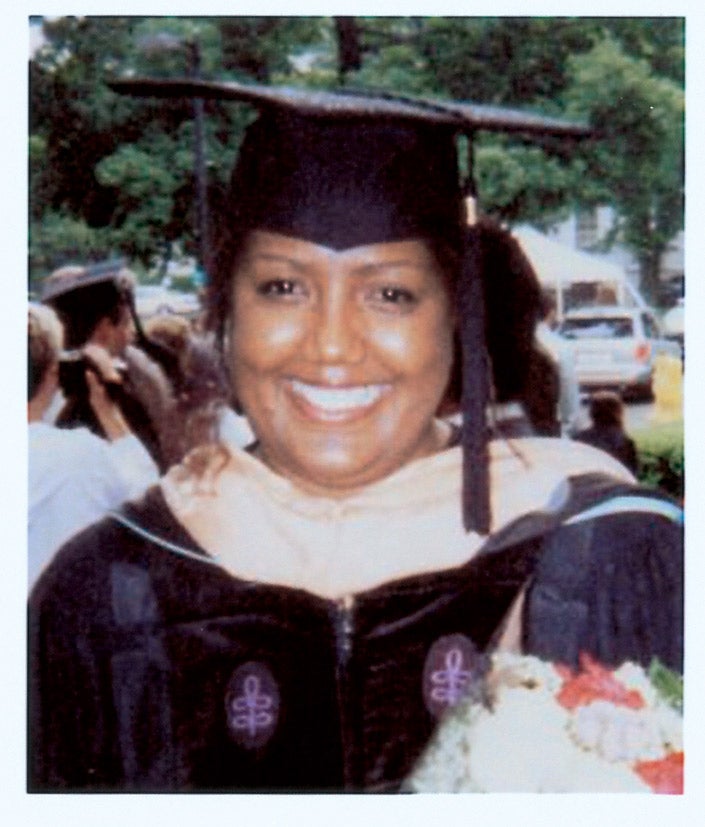Why I Left Harvard Law School . . . and Why I Came Back Again
During the fall of my 2L year, I was the only African-American woman enrolled in a Law and Economics class. The class examined a tort case about an African-American woman in her mid-30s who died as a result of medical malpractice. Our assignment was to present an argument for damages, based on the determination of the deceased’s lost wages. This calculation hinged upon whether the deceased, a domestic living in a low-income neighborhood who had obtained her GED and had just been accepted into college, would have finished the nursing program that she was scheduled to begin several months after her death. The general consensus of the class was that she would not have finished nursing school, and therefore the damages should be small.
For me, the woman in the hypothetical was much more real than imaginary, however. My grandmother, like several other women in my family, was a domestic in the South for many years. She was not born with much but, like the woman in the hypothetical, had aspirations and dreams of creating a better life for herself and her children. Had she been presented with the opportunity to attend college as a young woman, I know that she would have finished.
Because I had a personal connection to people like our imaginary victim, I envisioned the potential for her future differently. And so, although I was assigned to be a lawyer for the defense, I often found myself arguing the case for my opponent. I felt that the students and the professor in the class overintellectualized the case, their conclusions shaped by negative perceptions based on race, poverty, and gender. When I later raised this issue with the professor, he indicated that my performance in the class was lacking. Apparently, I shouldn’t have argued the “wrong” side of the case.
On several other occasions at the law school, I personally experienced people’s unfair judgment or treatment of me based on my race and gender. During the spring of my 1L year, I ran for president of the International Law Society and won. My opponent was a rising 3L student, a white man. After losing the election, he reported me to the dean of students office for “white male bashing,” a charge that had no basis whatsoever. Once the student realized he couldn’t win the election by attempting to soil my reputation, he invited me to lunch. I accepted, thinking that he intended to apologize for his actions. Instead, he asked me to step down as ILS president because he was a 3L and would not have the chance to run again. He would not, I am convinced, have asked the same of a white student.
That following summer, I worked as an associate in a law firm in Paris. One of the junior partners at the firm, a white American HLS graduate, shared with me a few parting words of advice: “Face it, Yvonne. Life is not fair. You’re very intelligent, but you’ll probably never make partner because you’re a black woman, and you just can’t bring in clients.”
Slowly, I began to internalize what seemed to be a general lack of faith in my ability to succeed in the legal profession as an African-American woman. I decided to take a leave of absence from the law school, enrolling in a concurrent degree program at the Fletcher School of Law and Diplomacy, and eventually pursuing an M.B.A. in France. I later officially withdrew from the law school and worked in New York City in the film industry for five years before deciding to finish my law degree after reading about the addition of Lani Guinier to the law school faculty. In the intervening years, I had gained a newfound appreciation of myself and the law, although I still had some doubts about my experience at HLS. My greatest reason for returning to the law school was that I wanted to finish what I had started. I am determined not to let others define me or my capabilities.
I left and later returned to Harvard Law School questioning how far we really have come in this country in terms of race relations, and how far we have yet to go. Events this past spring at HLS that unearthed misunderstanding and conflict about race indicate that, despite the great legal and political progress that has been made in America as a result of the civil rights movement, enormous personal and social gulfs remain. What saddens me the most, however, is that many talented, bright students, who would otherwise have the potential to become brilliant lawyers, simply lose faith in the power of education somewhere along the way because of experiences similar to mine. Until educational institutions like Harvard Law School are willing to address the negative impact of economic, racial, gender-based, or other forms of discrimination against students within our schools, I’m afraid that won’t change.
Yvonne M. Anderson ’96 (’02) works as a consultant in Boston while finishing her master of arts in law and diplomacy at the Fletcher School. She will start as an associate at Bredin Prat in Paris in May 2003.
